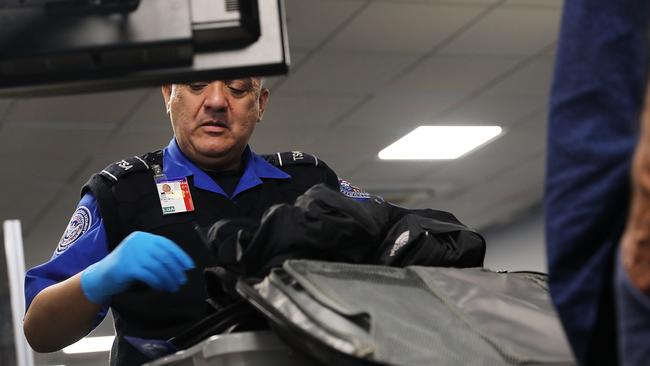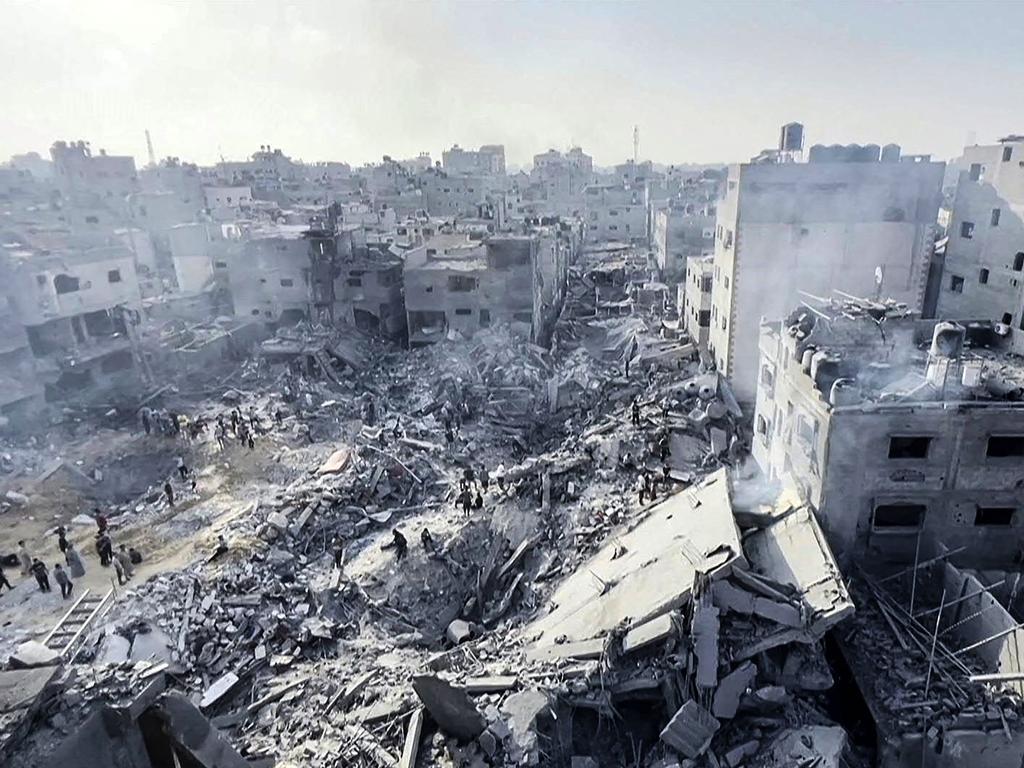Last week I was enduring the familiar ordeal of a long queue at airport security (for a glimpse of the full Hobbesian horror of what bureaucratic inefficiency and insufficient physical and human capacity can achieve, you can’t beat Terminal 1 at John F. Kennedy International Airport in New York).
As it always does, the same thought crossed my mind while I untied my shoelaces, attempted to disgorge a reluctant laptop from a tightly packed bag, frantically tried to remember if the little bottle of contact lens fluid in my wash kit was bigger than three fluid ounces: how grudgingly necessary but also how fundamentally futile it all is.
Twenty-two years ago, 19 homicidal Islamists armed with box cutters got lucky with sleepily inept airport security and unleashed murder and havoc, whose geopolitical consequences we are still digesting.
It’s a tribute to their depraved achievement that one of its smaller consequences was the impact on travel: inconvenience and huge economic penalties, probably hundreds of billions of dollars in the direct costs of security and the indirect costs of all those latencies and inefficiencies.

The unsettling thought that always strikes me as I see some aged passenger rising from her wheelchair to shuffle shoeless through the magnetometer is this: do we really think the people who are out to commit mass murder in pursuit of their medieval objectives are going to try that again?
The thing about 9/11 is that it took us by surprise. The next attack won’t come at us where we are prepared for it, where we have built layer upon layer of redundant security. The enterprising terrorist, and his well-resourced state sponsors, are seeking less hardened targets.
We know this, and yet somehow they still outwit us. This is what they did in Israel on October 7, streaming across an improbably weakly defended border and using guns, knives and grenades, not planes, to inflict an atrocity on Israelis that was, relative to the country’s population, 15 times greater than 9/11.
Another, unrelated, horror unfolded last week, further darkening the mood. At roughly the same time as I was boarding my plane, yet another deranged American man armed with yet another semi-automatic rifle and a weird grudge shot dead 18 innocent people in yet another American city, this time in Maine, more famous for bucolic beauty than feral violence. It was the 36th mass shooting, broadly defined, in the US this year. They’ve claimed 190 lives. Thousands of Americans have died in other episodes of gun violence.
Let’s add one more element. Last week, Customs and Border Protection, the federal authority charged with enforcing the nation’s immigration laws, reported that for the second fiscal year in succession (ending in September) the number of illegal border crossings by would-be immigrants to the US topped two million. Since Joe Biden came to office almost three years ago, pledging to undo his predecessor’s restrictionist approach to immigration, the total number of illegal crossings is almost six million.
Now think about those terrorists, that renewed Islamist fanaticism, those guns and that border. The US frontier with Mexico, patchily policed at best by this administration, is 1954 miles (3145km) long. The Gaza border with Israel, notionally at least one of the most tightly controlled in the world, is 37 miles long.
Among the millions trying to enter the US illegally in the last year, authorities confirm that at least 160 have identities that match names on the FBI’s terrorist watchlist. Those are just the ones the FBI knows about. You don’t have to have an overly negative view of the agency’s intelligence capabilities to estimate that the number who have actually tried to enter – many successfully – is a multiple of that.
Unlike those Hamas terrorists, these killers don’t have to be armed when they cross the border to unleash horror. Like the dozens of homegrown mass shooters, they - or their proxies - can simply walk into just about any Walmart in Texas or Oklahoma and arm themselves with enough weapons to wipe out most of a small town’s residents.
As travellers struggle through the performative security at airports, the truth is the US is spectacularly unprepared for the next terrorist attack. Leaders are scrambling to catch up.
This week, as pro-Hamas students and others around the country continued to demonstrate in their thousands against Israeli military action, Christopher Wray, the FBI director, was summoned to Capitol Hill to testify about the scale of the terror challenge. He said: “The reality is that the terrorism threat has been elevated throughout 2023, but the ongoing war in the Middle East has raised the threat of an attack against Americans in the United States to a whole other level.”
You would have to be an unworldly optimist to think that another 9/11, another October 7, will not happen, here in the US or perhaps elsewhere in a weakened West that seems to have gone out of its way to expose its vulnerabilities to its enemies.
If – when – it happens, the consequences, as with 9/11, will be world-changing. But unlike 9/11, expect this one to intensify domestic political fury. Large numbers of Americans will see it as the inevitable consequence of the left’s regnant ideology of the past few years; one that disdains borders, embraces “multiculturalism” and tolerates voices that call for their own civilisation’s destruction. They’ll demand much more than tightened transport security.
The Times








Forgive me if this sounds a little solipsistic but sometimes the juxtaposition of world events with what the kids like to call the “lived experience” can trigger sobering thoughts about life, terrorism and geopolitics.